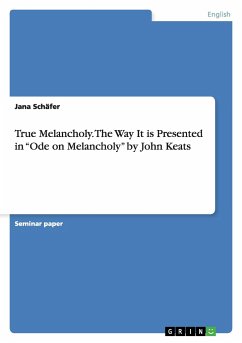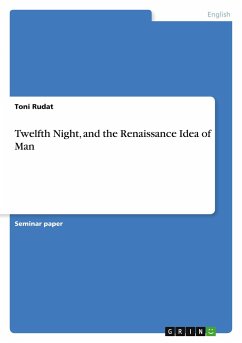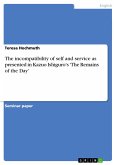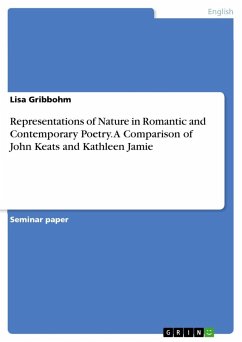Seminar paper from the year 2010 in the subject English Language and Literature Studies - Literature, grade: 1,7, Justus-Liebig-University Giessen, language: English, abstract: Melancholy is a topic which obsesses people and especially literature for centuries. It is widely and contradictorily discussed by all sorts of poets differing in each period. The contradiction reaches till today. The stereotype is deeply rooted in our minds when we address someone who seems to be sadly absorbed in thoughts scornfully as "melancholic" or "melodramatic". In our present culture it is mostly important to be joyful, funny and smiling all the time. Melancholy is consequently declared as something negative linked with sadness, misery and even death-wish. Moreover, it is connected with depression which equals it as a disease. This misunderstanding happened throughout centuries and is presented in literature as true and false melancholy. The false melancholy corresponds with the negative picture of it and is linked with the gloomy graveyard-poetry. Keats in contrast to that is a representative of the true melancholy. Thus he dedicated one of his famous "odes" explicitly to melancholy. "Keats' concept of melancholy [...]focuses on the intense experience of life's beauty" (Farrel 1989: 76)The picture he evokes is that of true, experienced melancholy. In the following I would like to show how Keats creates his definition of true melancholy through the images he uses in "Ode on Melancholy".
Hinweis: Dieser Artikel kann nur an eine deutsche Lieferadresse ausgeliefert werden.
Hinweis: Dieser Artikel kann nur an eine deutsche Lieferadresse ausgeliefert werden.








